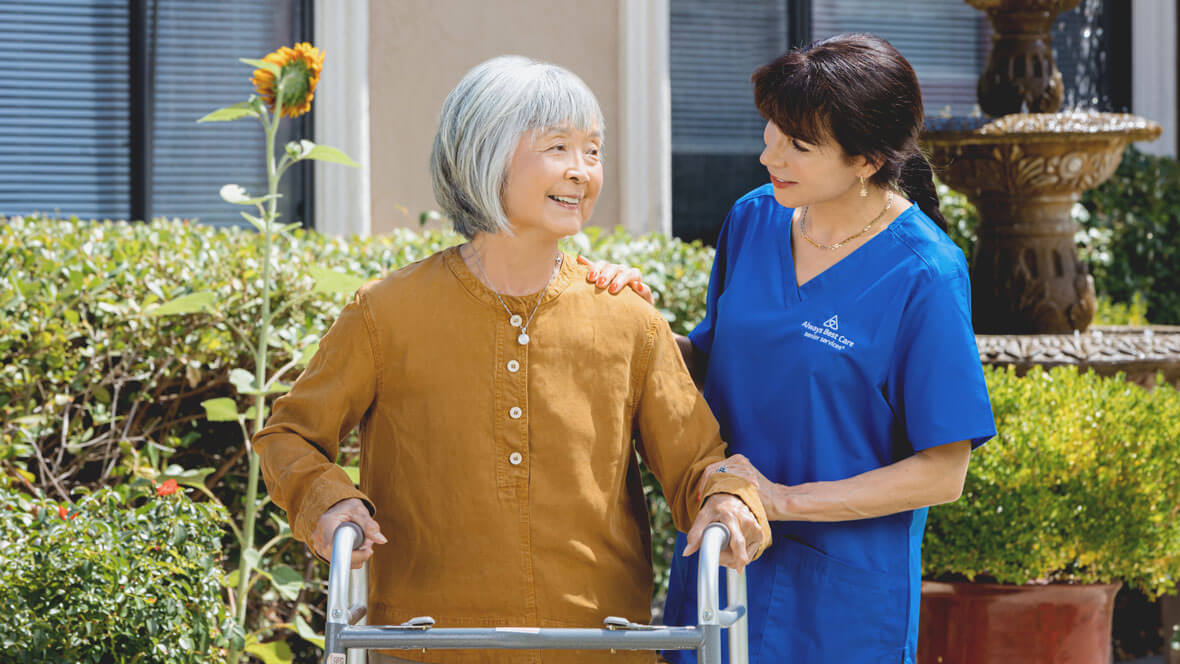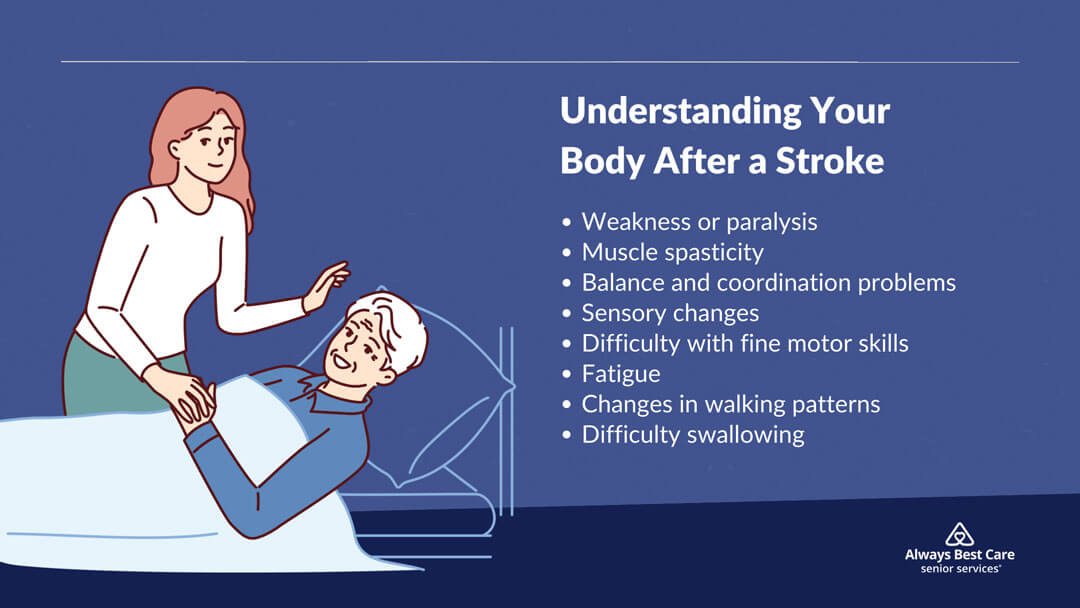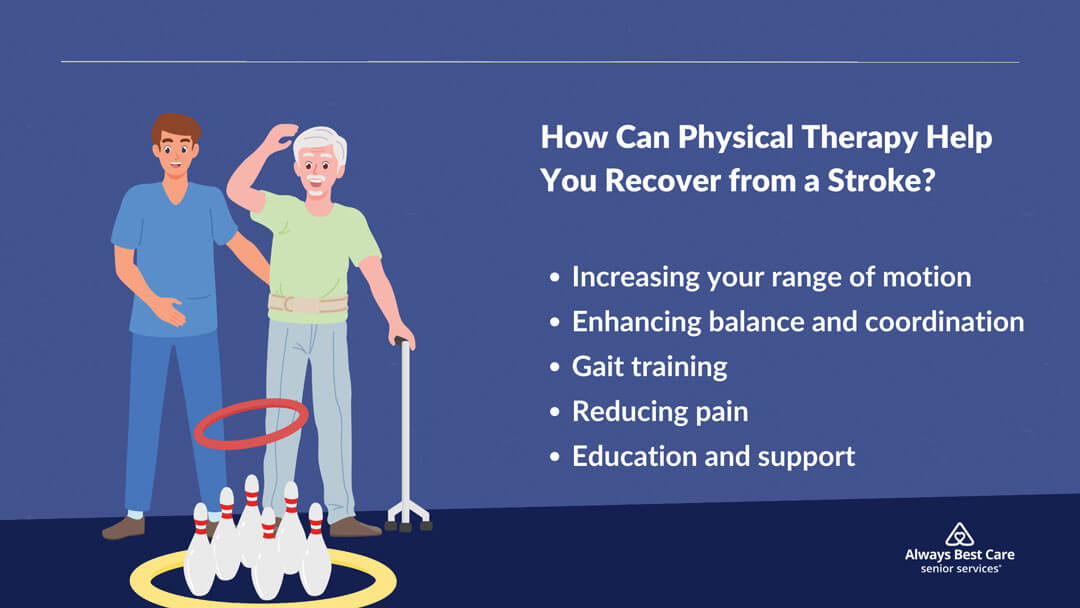From Loss to Strength: How Physical Therapy Can Help Stroke Patients Regain Mobility

We all want ourselves and our loved ones to stay safe and healthy, especially during sensitive phases of life when injury involves more risk. Whether you’re learning to be prepared or because you need to apply what you’ve learned now, we’ve got your back.
If you or a loved one recently suffered from a stroke, we understand how scary it can be. Fortunately, there are many options to help you recover from the trauma of a stroke. One of the most proven and effective methods of stroke rehabilitation is physical therapy.
Table of Contents
Understanding Your Body After a Stroke

Because a stroke cuts off the blood flow from your brain, you may suffer side effects in muscle use, coordination, and motor skills. These include:
- Weakness or paralysis. Your muscles may be weak after a stroke, especially on the affected side of the body. This can make walking, reaching for objects, or lifting your feet difficult.
- Muscle spasticity. On the other hand, some patients have tight muscles that involuntarily contract after a stroke. This can cause challenges in moving about.
- Balance and coordination problems. Stroke patients may also struggle to balance or coordinate their bodies for more complex movements.
- Sensory changes. Especially on the affected side of the body, some patients may feel tingling, numbness, or less sensitivity.
- Difficulty with fine motor skills. Because strokes impair brain coordination, this can translate into hand and arm coordination problems. For example, patients may struggle to do fine work, like buttoning clothing, writing, or other fine motor skills.
- Fatigue. It’s natural to feel tired after a traumatic physical event, and strokes are no exception. Don’t be surprised if you need to take it easy after a stroke.
- Changes in walking patterns. You might have a different gait, including dragging a foot on the affected side or putting more weight on one leg than another.
- Difficulty swallowing. Some stroke patients also find it hard to swallow, a condition called dysphagia.
Although there are many factors to consider when recovering from a stroke, there are just as many solutions. We’re here to walk by your side and guide you to an effective recovery strategy.
How Can Physical Therapy Help You Recover from a Stroke?

For stroke survivors, the physical effects of a stroke can be concerning. Fortunately, physical therapy can help you recover from a stroke and regain your previous physical condition. Some of the ways physical therapy can help include:
- Increasing your range of motion. Physical therapists know how to work through exercises and activities with you that can help your body relearn coordination, strength, and independence. Your therapist may assign you activities like stretching or passive range of motion exercises.
- Enhancing balance and coordination. One way to regain your balance is by practicing balancing exercises. Physical therapists can guide you to the right exercises.
- Gait training. Physical therapy is one way to return your body to its normal gait and improve stability while walking.
- Reducing pain. Some physical therapy exercises can alleviate pain after a stroke and help you feel more comfortable as you recover.
- Education and support. Your physical therapist can help and advise you, your family, and your caregivers. Having a touchpoint for universal education can help smooth your recovery process.
The peace of mind and body physical therapy can offer is essential for stroke survivors. You can have a clear path forward to a full, healthy life.
What are the Benefits of Physical Therapy for Stroke Patients?

There are other benefits besides the physical payoff, however. Stroke survivors can find a haven of emotional support and hope in their physical therapy sessions. Stroke survivors enjoy these benefits in the following ways:
- Emotional and physical support. Your physical therapist isn’t just there to help you physically recover from a stroke. She’s also there to answer your questions, encourage you, and celebrate progress and success.
- A personalized recovery plan. Instead of receiving the same treatment as any other stroke patient, your physical therapist can listen to you and develop a unique treatment plan that meets your needs. This plan includes continuous monitoring and adjustment so you aren’t stuck in a pattern that doesn’t work for you.
- Being a trusted voice. Your physical therapist is an expert on how to rehabilitate stroke survivors. Her expert opinion on activities and exercises for healing is immensely valuable.
- Support for lifestyle changes. She can also offer support as you learn to adapt to a new way of life, whether simply by adding exercises or discovering ways to make life at home easier.
Stroke survivors don’t need to feel alone in their recovery journey. Physical therapy is a revolutionary treatment for them, and its emotional support is just as valuable as the physical.
Success Stories: Real-Life Examples of Recovery
Sometimes, a few examples help us feel at peace about the next steps. Let’s examine some real-life stories about stroke survivors who recovered their physical well-being through physical therapy.
Choosing the Right Physical Therapy Provider
Choosing the right PT provider is just as important as conducting treatment sessions because having a compassionate, patient physical therapist can be game-changing in the recovery process. Always Best Care physical therapists are licensed, compassionate individuals who can’t wait to help you on your journey to hope and recovery.
Don’t wait to discover healing and hope after surviving a stroke. PT can drastically improve your stroke recovery process. If you’re looking for a way to progress in recovery and gain peace of mind, look no further than physical therapy.
Embrace Your Journey to Recovery: Schedule Your Consultation Today
Always Best Care provides quality senior services tailored to your needs and abilities. Located at 10455 Jefferson Hwy Suite 110, Baton Rouge, LA 70809, United States, contact us today at +1 225-513-8656 to schedule a care consultation and learn how we can assist you in safely and comfortably aging in place!





